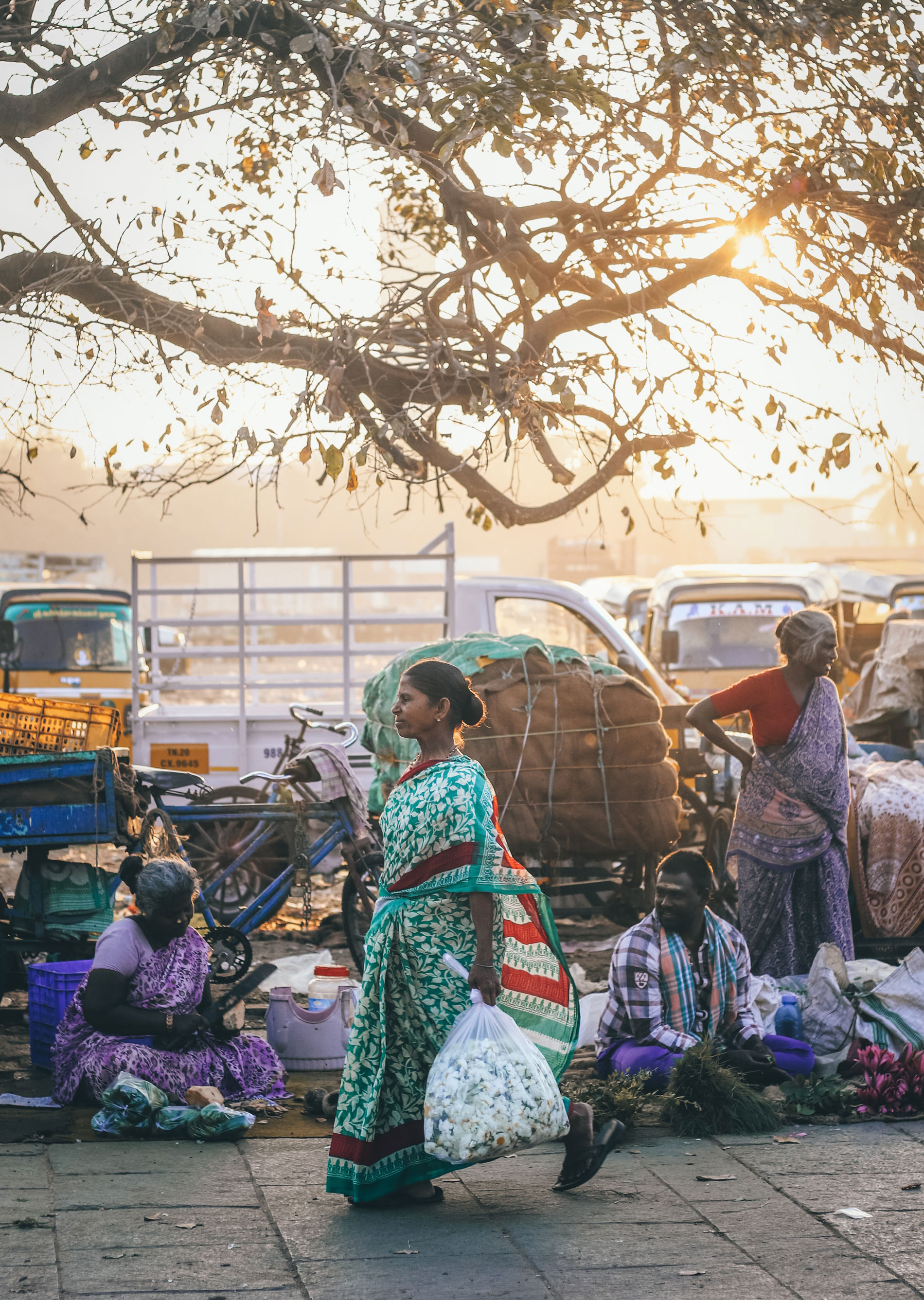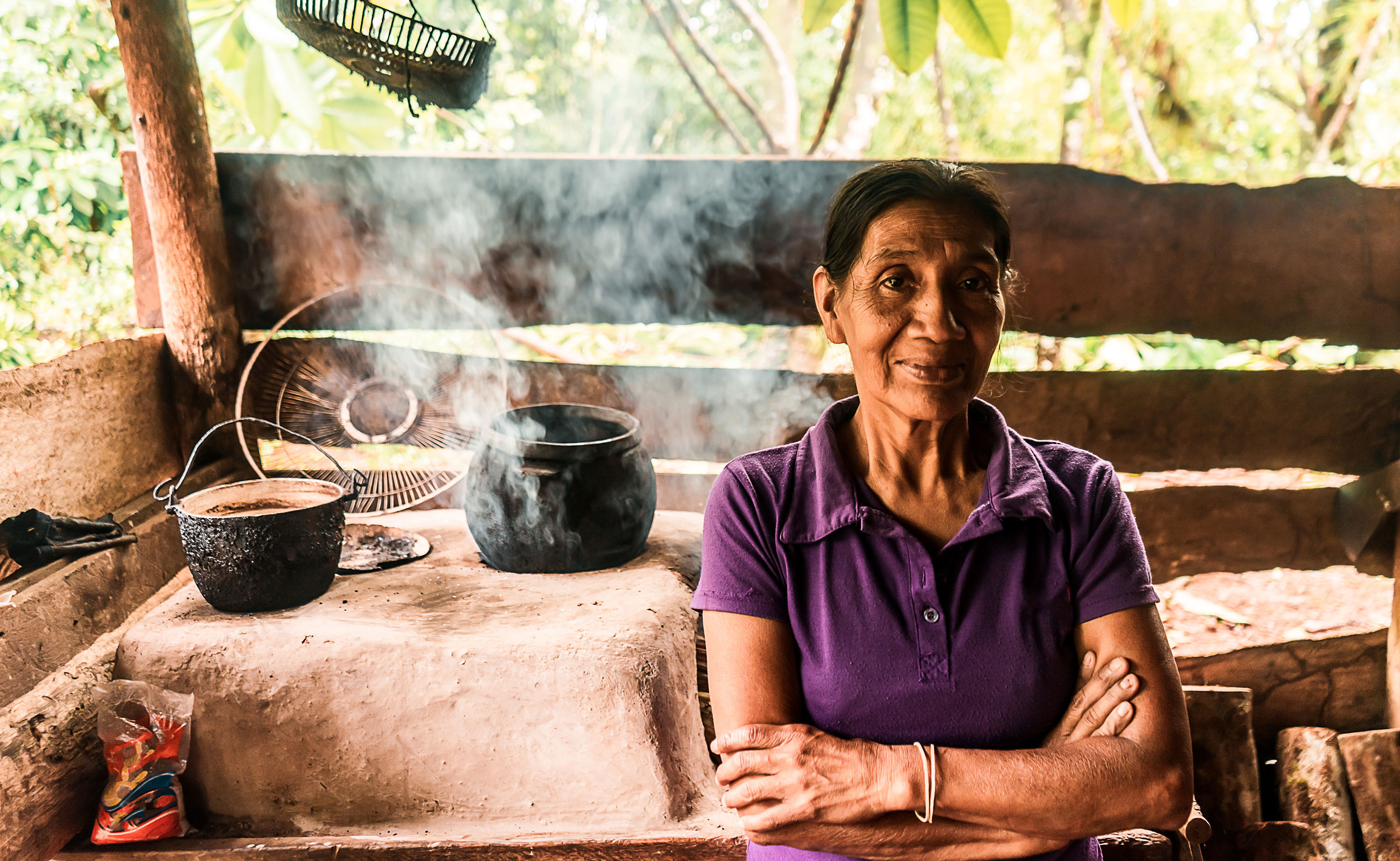
© Prashanth Pinha
Women in local and global leadership
Policies and efforts to fight against gender-based inequalities, systemic discrimination, and violence against women and girls will continue being one of the key challenges all over the world in 2023. The global feminist municipal movement is expected to grow in strength and scope. It is not just about women’s rights, nor the number of women in power. It aims to increase the meaningful participation of all people, with a focus on groups who, historically, culturally, and systematically, have been excluded. This includes women, the LGBTQIA+ community, indigenous communities, people of colour, youth, older persons, persons with disabilities, and feminist leaders. The importance of local action in achieving gender equality cannot be overstated. Raising the number of women-led municipal government and empowering women to take up positions of leadership and decision-making is one of the central pillars for the movement.
The mayor of Montevideo, Carolina Cosse, was elected at the end of 2022 as president of UCLG up to the end of 2023. Cosse is one of the five women elected as mayors in capital cities of Latin America, together with Bogotá, Mexico City, Santiago de Chile and Santo Domingo. In the largest cities of Latin America, the percentage of elected mayors who are female is a bit over 11 per cent. Data does not improve at the national level. Only Barbados, Honduras, Peru and Trinidad and Tobago have female heads of state.
Bangladesh’s prime minister, Sheikh Hasina, is the longest serving female non-hereditary head of government and longest serving female leader of a country. India, Nepal, Samoa, Singapore, and Taiwan are the other five countries in Asia with female heads of state or government. Jacinda Ardern, New Zealand’s Prime Minister, announced she would resign from her position in February 2023, opening a public debate about sexism and the slow progress for women in politics.
When looking at elected female mayors in capital cities of that region, it is only possible to mention three: Honey Lacuna Pangan, mayor of Manila since June 2022; Rosy Senanayake, mayor of Colombo since 2018, and Yuriko Koike, Tokyo’s first female governor, elected in 2016.
In Africa, Rose Christiane Raponda was the Prime Minister of Gabon up to her appointment as the first female vice-president in Gabon on 9 January 2023. Ethiopia, Togo, Tunisia and the United Republic of Tanzania are the four countries with female heads of state or government. Banjul, Freetown, Libreville, Lusaka, Malabo, Rabat, and Tunisia are among the cities with locally-elected female mayors.
In the European Union, ten out of its 27 members have elected female heads of state or government: Denmark, Estonia, Finland, France, Greece, Hungary, Italy, Lithuania, Slovakia, and Slovenia. Amsterdam, Berlin, Copenhagen, Dublin, Luxembourg, Paris, Sofia, and Stockholm city councils are also led by female mayors.
Other countries with female heads of state are Bosnia and Herzegovina, Georgia, Iceland, Kosovo, Moldova, and Serbia. Among these, Bosnia and Herzegovina and Moldova, as well as Barbados, are the only republics in the world where both serving heads of state and heads of government are females.
Reinforcing the position of women in the political arena requires the development of processes and policies aimed at promoting their participation. Lately, thanks to the consolidation of democracies around the world, and the intensification of proactive equality movements in the public sphere, the number of women in decision-making at the local level has been increasing.
According to the data on 136 countries gathered by UN Women, it can be verified that almost three million women constitute 34 per cent of the members of local governments; only two countries have reached the threshold of 50 per cent, and the 40 per cent mark was reached only in 20 countries. The highest percentage of women in local leadership positions is in Central and Southern Asia, where it reaches 41 per cent. Oceania shows 32 per cent and East and Southeast Asia 28 per cent. In addition, according to UCLG data, just over five per cent of city mayors in the world are women.
While it is true that representation at the local level is slightly higher than at the national level, it is only necessary to observe meetings of decision-makers to see that gender parity is still far from being achieved.
In the United States of America, as of August 2022, of the 1,617 mayors and officials who perform mayoral functions, only 26 per cent were women. If we only look at the top 100 most populated cities, the percentage is 33 per cent. Among those 33 women mayors, nine are Black women, three are Latina, and five are Asian American/ Pacific Islander women. Not to mention that among the 46 presidents in the history of the US, no woman has ever occupied that position. Washington, D.C., elected the first-ever
female mayor, Muriel Browser, in 2015. New York City has yet to elect a woman as mayor, as well as Philadelphia or Detroit. Los Angeles was in the same group of US cities which never held a female mayor in office until November 2022. Karen Bass became the first woman and the second Black mayor of Los Angeles, replacing Mayor Eric Garcetti.
The European Institute for Gender Equality’s data shows a percentage of 17.7 per cent of women mayors or leaders of the municipal councils in the European Union as of 2022. When expanding the data to members of the municipal councils, the percentage goes up to 34.5 per cent.
In the last few years, there has been an increase in women leaders heading critical global and regional organizations and institutions: Ursula von der Leyen, President of the European Commission; Kristalina Georgieva, Managing Director of the International Monetary Fund; Christine Lagarde, president of the European Central Bank; Janet Yellen, Secretary of the United States Treasury; Sharan Burrow, General Secretary of the International Trade Union Confederation, and Ngozi Okonjo-Iweala, Director General of the World Trade Organization.

© Carlos
SPOTLIGHT ON
Generation Equality Action Coalition on Feminist Movements and Leadership
The Generation Equality Action Coalitions are the world’s roadmap for gender equality and acceleration of progress towards the SDGs. Among the six multi-stakeholder coalitions, the one on Feminist Movements and Leadership is formed by 25 partners and co-lead by UCLG. The coalition’s vision is that “by 2026, feminist leaders, movements, and organizations, including those led by trans, intersex and nonbinary people, indigenous women, women and people with disability, young feminists, and other historically excluded people, are fully resourced and supported to become sustainable, can carry out work without fear of reprisal, and advance gender equality, peace, and human rights for all”. UCLG will be hosting a two-day in-person strategy and vision workshop of the Coalition in Barcelona in February 2023.
Sierra Leone Gender Equality Act
The Gender Equality and Women’s Empowerment Act was signed by Sierra Leone’s President in January 2023. The Act promotes gender equality and makes a provision for a minimum of 30 per cent quota of each gender for elective and appointive public officer positions in Sierra Leone. Currently, women represent just 19 per cent of local officials, 12 per cent of parliamentary seats and four of 32 cabinet positions. It also requires public and private entities to reserve a 30 per cent of their jobs for women, as well as 14 weeks of maternity leave, equal pay, and training opportunities. The Act will go into effect ahead of Sierra Leone’s upcoming presidential, parliamentary, mayoral, and local council elections in June 2023.
The African Mayoral Leadership Initiative (AMALI) launched the City Leadership Programme in January 2023, announcing the inaugural cohort of African mayors and governors from 11 countries. Mayor of Lusaka, Chilando Chitangala; Mayor of Kitwe, Mpasa Mwaya, and Mayor of Nansana, Regina Bakitte Musoke, are among them. The programme will consist of a year-long programme supporting city leaders in honing the visions for their cities. AMALI is a partnership between the African Centre for Cities (ACC) and Big Win Philanthropy.
The UNGA Platform of Women Leaders convenes women heads of state to highlight the importance of women’s political leadership. Its first meeting took place in September 2022 as a special initiative of the President of the General Assembly, Csaba Körösi, and the Executive Director of UN Women, Sima Bahous. It is not yet clear how the platform will advance in 2023.
The International Day of Women in Multilateralism
Adopted by UNESCO in November 2021, it will be the second year the International Day of Women in Multilateralism is celebrated on 25 January. The purpose is to recognize the essential role played by women in the promotion of human rights, peace, and sustainable development within the multilateral system. It advocates for increased representation of women in key decision-making positions that shape and implement multilateral agendas, and for ensuring that multilateralism works for women and girls, through gender transformative actions and agreements.